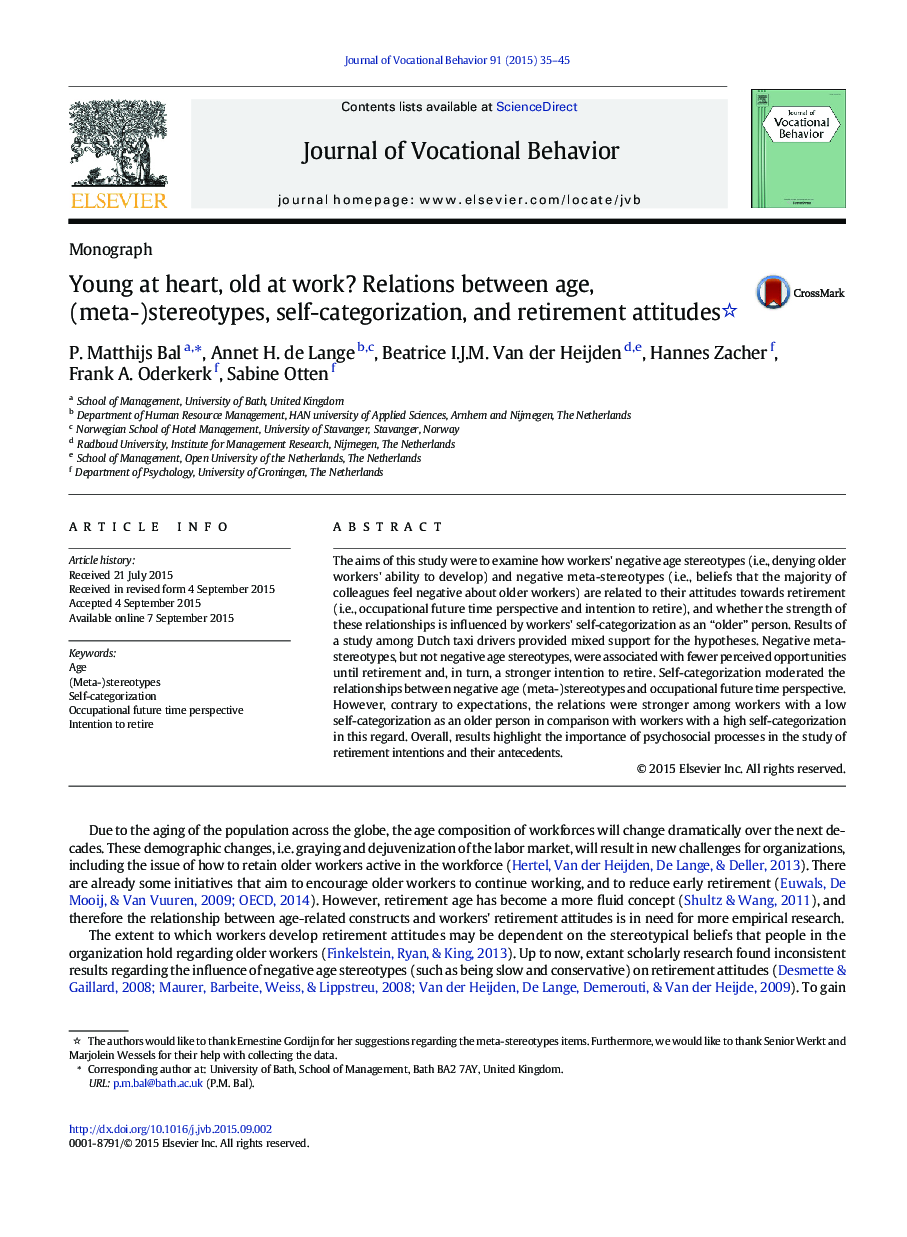| Article ID | Journal | Published Year | Pages | File Type |
|---|---|---|---|---|
| 886734 | Journal of Vocational Behavior | 2015 | 11 Pages |
•Age stereotypes are related to higher intention to retire.•Meta-stereotypes also contribute to higher retirement intentions.•These relationships are explained due to constraint occupational future time perspective.•Self-categorization as a younger worker actually strengthens these relationships due to misfit.
The aims of this study were to examine how workers' negative age stereotypes (i.e., denying older workers' ability to develop) and negative meta-stereotypes (i.e., beliefs that the majority of colleagues feel negative about older workers) are related to their attitudes towards retirement (i.e., occupational future time perspective and intention to retire), and whether the strength of these relationships is influenced by workers' self-categorization as an “older” person. Results of a study among Dutch taxi drivers provided mixed support for the hypotheses. Negative meta-stereotypes, but not negative age stereotypes, were associated with fewer perceived opportunities until retirement and, in turn, a stronger intention to retire. Self-categorization moderated the relationships between negative age (meta-)stereotypes and occupational future time perspective. However, contrary to expectations, the relations were stronger among workers with a low self-categorization as an older person in comparison with workers with a high self-categorization in this regard. Overall, results highlight the importance of psychosocial processes in the study of retirement intentions and their antecedents.
